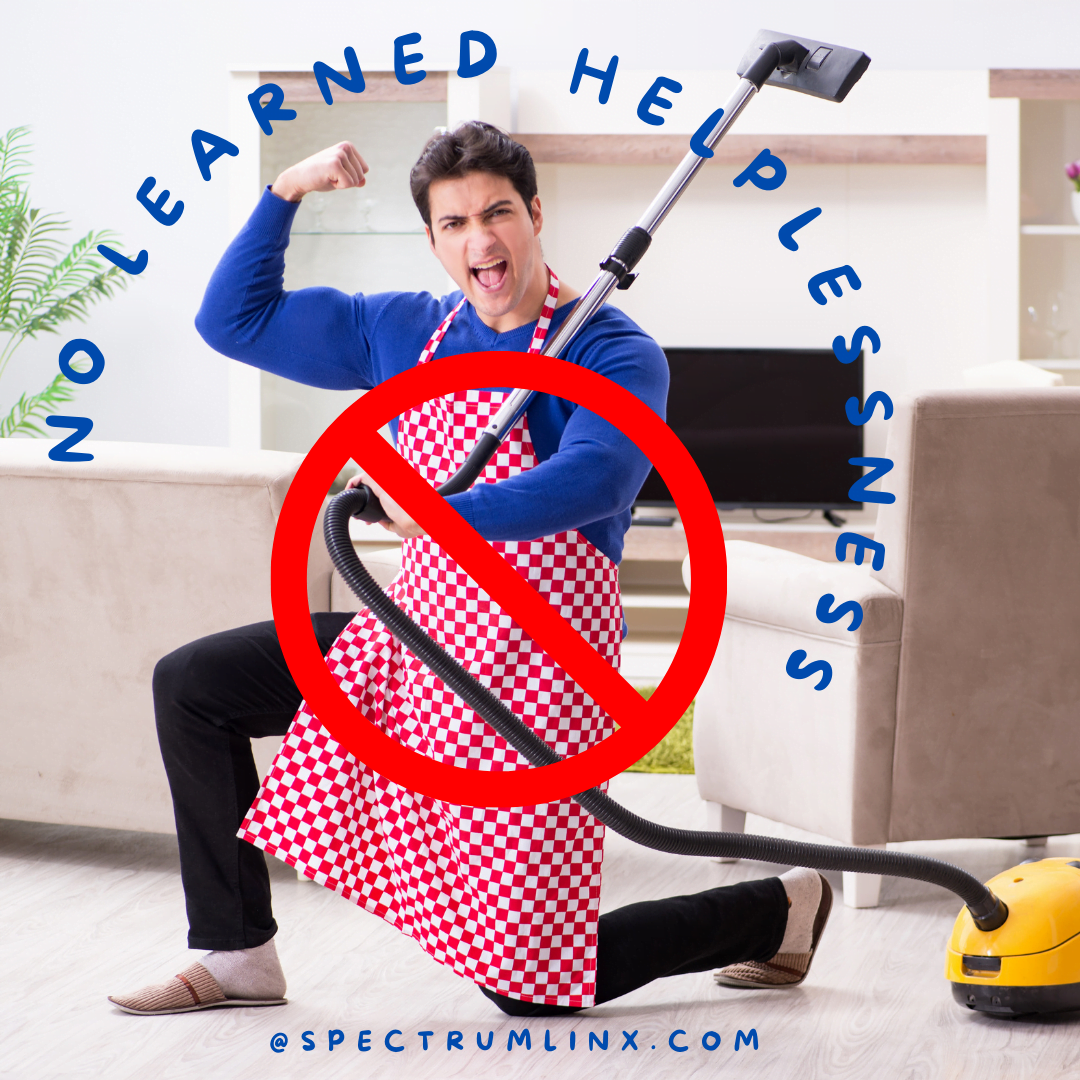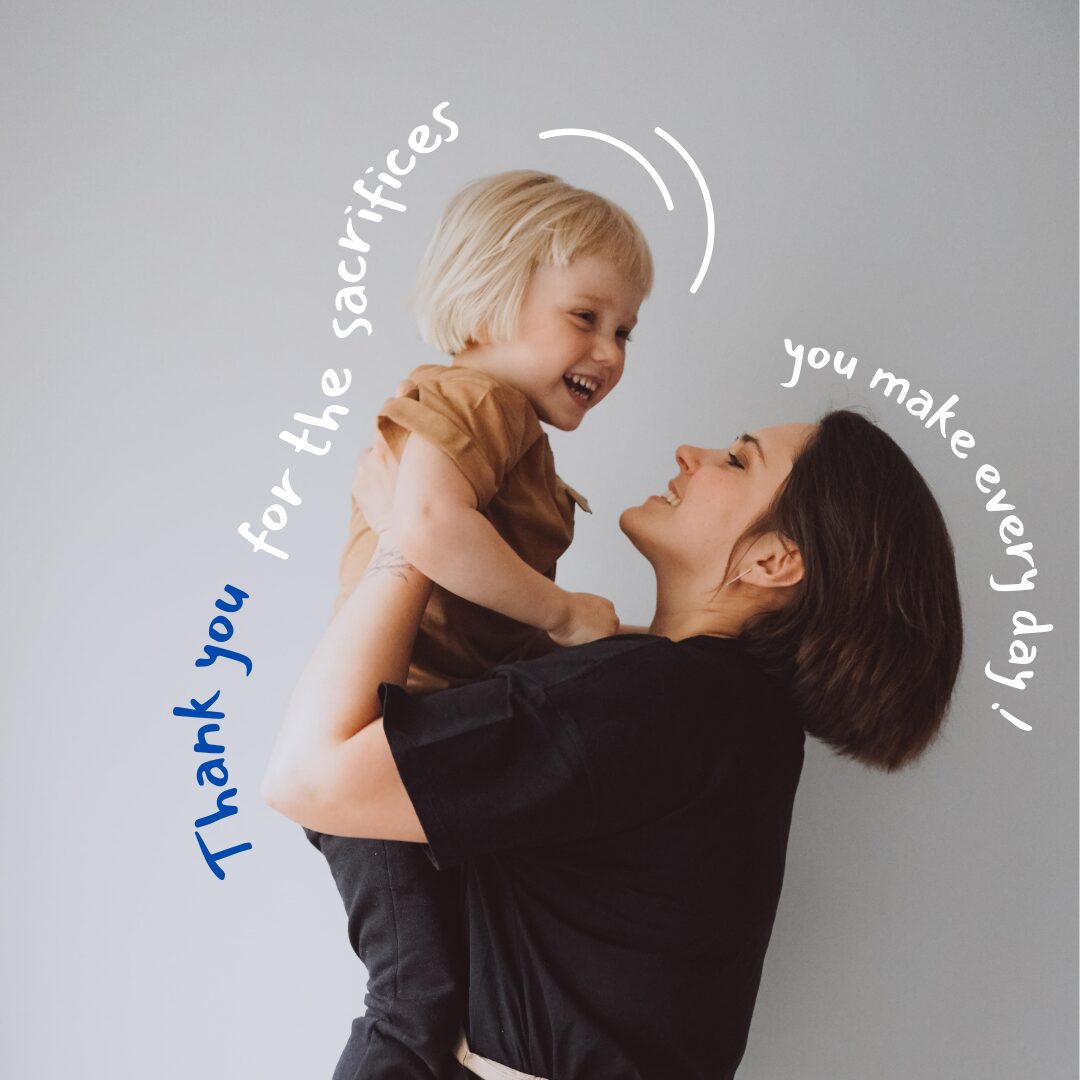Our goal at Spectrum Linx is to share with you things we have learned through experience so that your journey just might be a bit less challenging.
Over the years, we have worked with hundreds of students with various disabilities – including autism across the spectrum, ADHD, Tourette’s, social anxiety and others. A serious issue we often see is that these individuals frequently lack motivation. Motivation to do their schoolwork. Motivation to learn activities of daily living like housework, budgeting, grocery shopping, etc. Even motivation to keep themselves clean and healthy. It can be very easy for us, as teachers or parents, to see the lack of motivation and blame the disability.
When we look a little deeper, we start to understand that the lack of motivation may actually have nothing to do with their disability, however, and a lot to do with everyone around them.
Learned helplessness is a term that refers to a condition where individuals develop a belief that they are incapable of improving their own outcomes – incapable of success. This belief can lead to a sense of hopelessness where the individual may even stop trying to overcome challenges or asking for help because they believe their efforts will lead to failure.
How does this happen? Why would a child, a teen, or an adult with a disability feel like they can’t be successful?
Most of the time, it happens unintentionally:
- They always get too much help, even when they can do it on their own.
- They’re asked to do things they’re not ready for, that are beyond their skill level.
- They believe they can’t do or learn certain things because they’re never allowed to try.
Think of parents who always want to keep their kids safe from everything. They don’t want them to fail or be laughed at. The child then learns that without their parents’ support, they can’t succeed. They ultimately develop a fear of failure. The same is true for activities of daily life! Sometimes it’s just easier for parents to do it themselves, but this robs the child of important building blocks in skills and confidence.
Learned helplessness can affect an individual in many ways, including anxiety, depression, or low self-esteem. The individual may have difficulty following through with tasks. They may start to exhibit unwanted behaviors to avoid tasks.
Without an understanding of learned helplessness and how to avoid it, parents, caregivers, teachers, paraprofessionals – even doctors and therapists – risk becoming part of the cause. All kids face problems. Our job should not be to solve all their problems. We should encourage and help them learn to solve problems on their own.
How can we do that?
- Know Your Child’s Abilities- Tailor your expectations and tasks to their individual strengths, weaknesses, and specific needs to ensure they can experience success.
- Set Realistic Goals-Avoid asking your child to do things that are far beyond their current skill level and gradually increase the complexity of tasks as they build competence. This approach helps them see progress and avoids overwhelming frustration.
- Praise Effort and Persistence- Encourage a growth mindset by praising your child for their efforts, not just their achievements. Acknowledge their hard work, perseverance, and problem-solving attempts, reinforcing the idea that trying is valuable.
- Provide Constructive Feedback-Instead of focusing solely on mistakes, offer constructive feedback that helps your child understand how to improve. Break down tasks into smaller steps and provide guidance on each step.
- Promote Independence-Give your child opportunities to make decisions and solve problems on their own. Gradually reduce assistance as they become more capable, fostering a sense of self-reliance and confidence.
- Encourage Self-Advocacy-Teach your child to communicate their needs and seek help when necessary. Empower them to ask questions, express concerns, and work with educators or therapists to address challenges when possible.
- Celebrate Achievements-Celebrate both small and large achievements. Recognizing accomplishments, no matter how minor they may seem, reinforces the belief that progress is possible.
- Model Resilience-Children learn by example, so demonstrate resilience and a positive attitude toward challenges. Show them that setbacks are opportunities for growth and learning.
- Create a Supportive Environment- Foster an environment where mistakes are seen as part of the learning process, not as failures. Encourage a growth mindset that values effort, learning, and improvement.
- Seek Guidance- Consult with educators, therapists, specialists, self-advocates and other parents/caregivers who can provide guidance tailored to your child’s specific needs. Collaborate with these individuals to develop strategies that support your child’s development.
So, as parents and caregivers, it’s clear that helping our children overcome learned helplessness is a big deal. It’s not just about building their independence and self-esteem; it’s about setting them on a path to lead happy, meaningful lives and be active members of their communities. Let’s work together to ensure our kids have every opportunity to shine and thrive.






